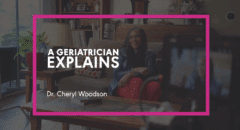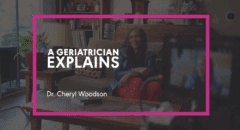
Though there’s a lot of emphasis on being physically active, it’s just as important to keep your mind agile. There are quite a few brain-based exercises out there that you can try but how about something that you normally do anyway? Listening to certain kinds of music at the right time can work wonders for keeping your brain young and boosting your mental capabilities.
5 Ways Music Helps Your Brain
1. It Helps Your Memory
According to recent studies, music tends to be tied to some of your most significant memories. That’s why hearing certain songs will bring back your experiences in a very engaging way. Since music stimulates the hippocampus, it can not only help you to retrieve old memories, it makes it easier to create new ones as well.
2. It Boosts Your Creativity
Where listening to familiar music helps your memory, reaching for songs you’ve never heard before can help with your creativity. Certain songs can boost your imagination, making it easier to produce creative content.
3. It Lowers Your Stress Levels
This benefit shouldn’t come as a surprise if you’ve ever heard a song that instantly put you in a calmer headspace. That happens because certain types of music release the neurochemicals known as dopamine and serotonin that help you manage your stress levels.
4. It Reduces Depressive Episodes
There’s a reason that doctors sometimes recommend music therapy to help those who are dealing with depression. Studies show that these people often experience a boost in their mood when they listen to songs that are upbeat. As an added bonus, listening to music that is associated with happy memories can further reduce the likelihood of depressive episodes.
5. It Improves Your Language Skills
This benefit is particularly great for those who are trying to learn a new language or people who are living with the effects of dementia. Studies show that music can improve how well to maintain your current vocabulary while helping you learn new words.
RELATED: Music is Good for Your Soul and Your Health
How It Works
According to several studies, listening to music affects a number of areas in the brain so that explains why its effects are so far-reaching.
Music has a positive effect on the frontal lobe, which handles decision-making and planning. It also enhances the temporal lobe, Broc’s area, and Wernicke’s area - all of which work together to process what you hear, read, and communicate.
Some of the other parts of the brain that benefit from listening to music include the amygdala, hypothalamus, and hippocampus.
The Type Of Music You Need
For many years, health experts believed that classical music was the only type of music that could influence how the brain works. Since then, they have learned that it’s not that simple.
While there can be benefits to listening to certain types of music, people tend to respond to music that’s associated with their background. For example, those who are living with Alzheimer’s disease are more responsive to songs that they listened to when they were younger than anything else.
However, as you explore what music works for you, there are a few things to bear in mind. Classical music has been shown to be great for helping you concentrate when you need to solve puzzles or manipulate shapes. It’s also calming.
If you’re interested in being more productive overall, then nature music is typically the way to go. It can block out distractions without disrupting your cognitive processes.
Cinematic music tends to be a good motivation for carrying out mundane tasks and helping you concentrate.
Generally, music that has 50-80 beats per minute can spark creativity and help you learn. It’s estimated that this range sends your brain into a relaxed state that makes your mind more receptive to creative thought and imagination. If you’re not working on anything, listening to this kind of music usually makes you zone out. Some examples of songs like that are ‘Chasing Pavements’ by Adele and ‘The Lazy Song’ by Bruno Mars.
Multiple studies show that listening to music regularly can not only keep your brain active but can also help you be productive. While the same type of music might not work for everyone, it’s easy to find what helps you. You only have to play some songs and see what happens.








